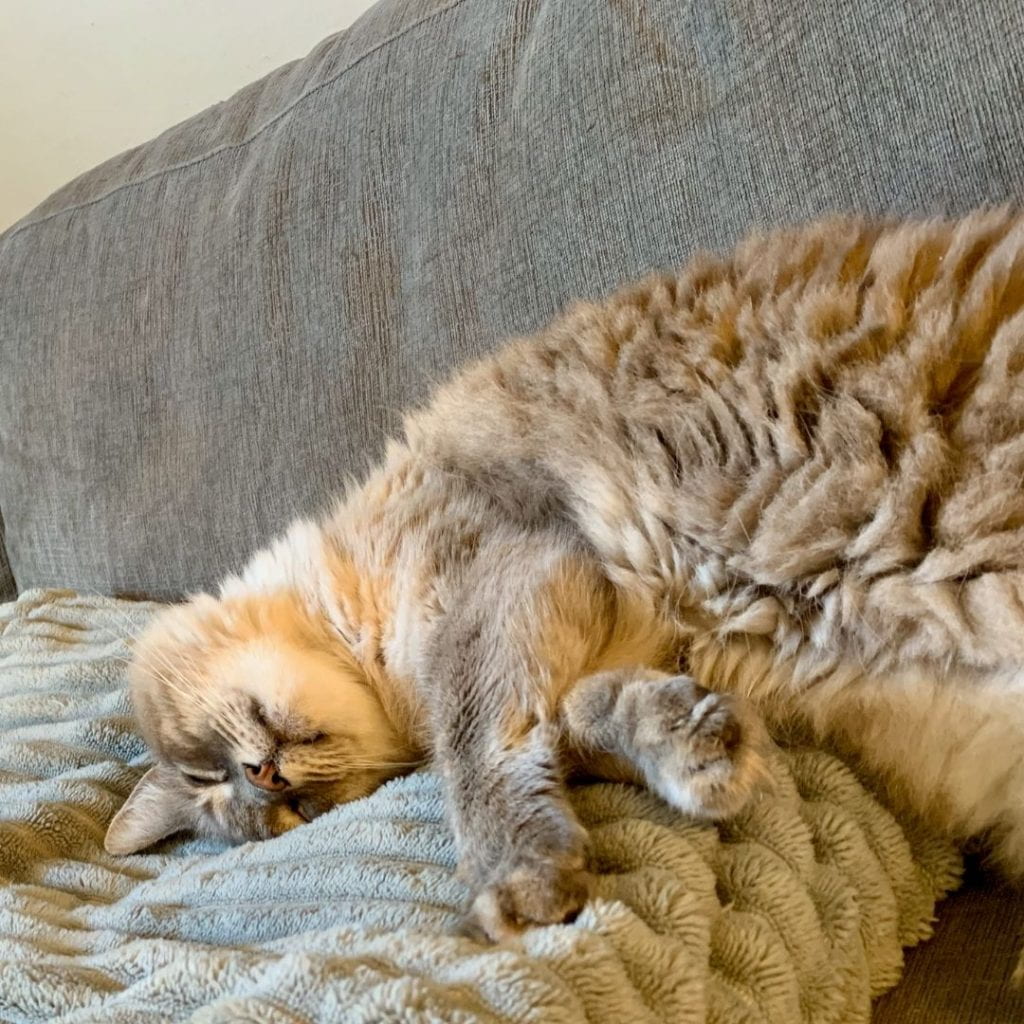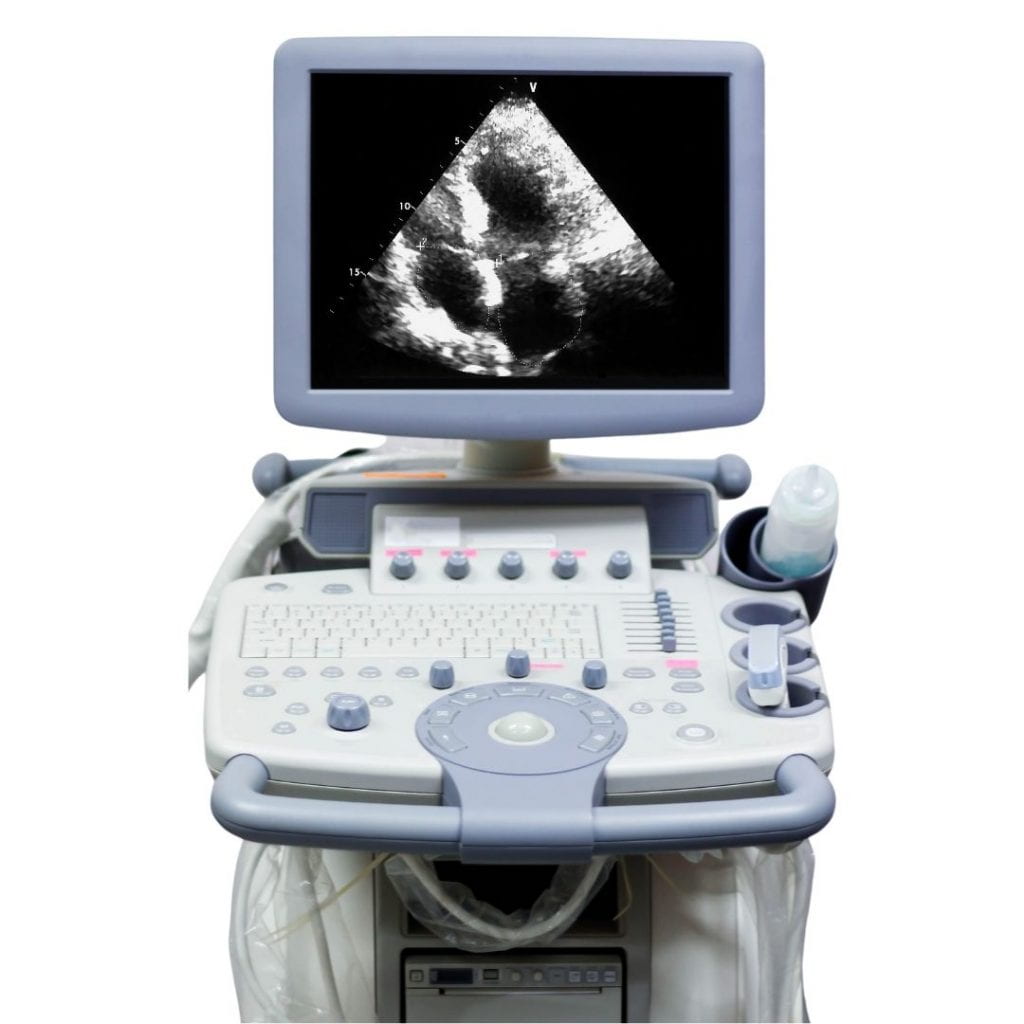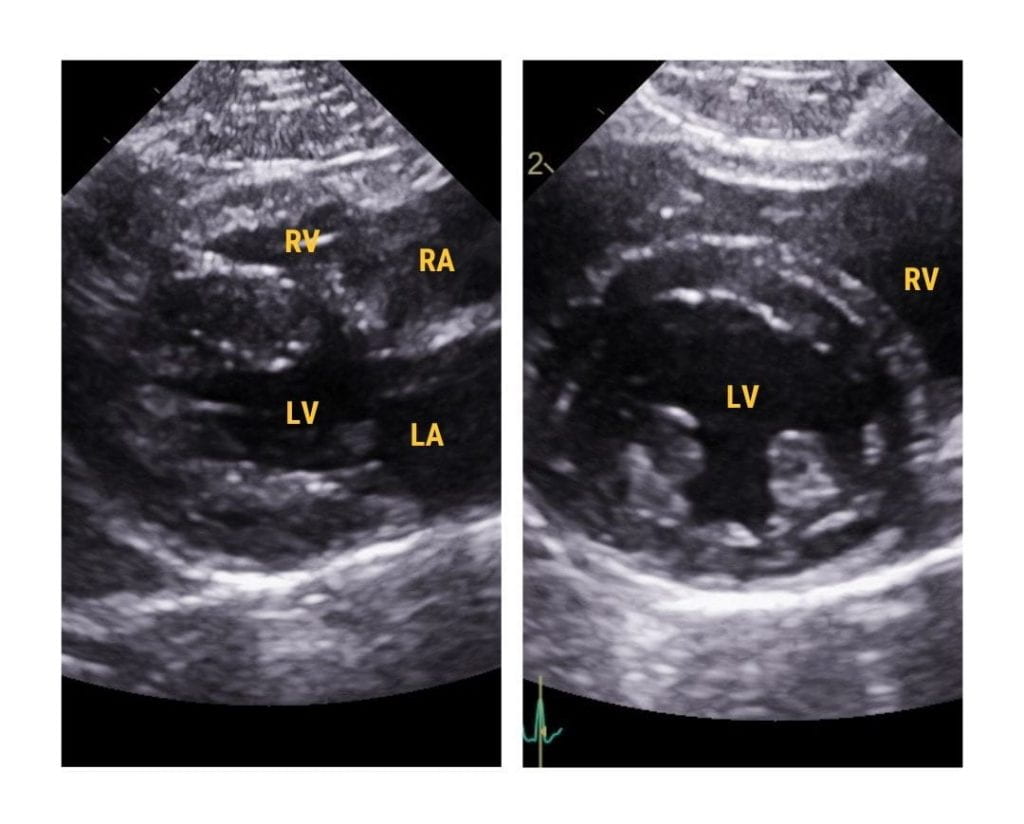
Study Investigators: Dr. Sonja Fonfara
Study Title: Does Age Influence Cardiac Structure and Function in Cats?
Generously Supported by: OVC Pet Trust and NSERC
As we get older, our hearts change. In humans, we develop thicker and stiffer heart walls. In cats, similar changes may occur as they age. The effect of aging on a cat’s heart and how these changes can affect their overall health is unknown.
Hypertrophic cardiomyopathy (HCM) is the most commonly diagnosed cardiac (heart) disease in cats. With HCM, the walls of the heart become thickened and stiff. These changes can decrease the heart’s efficiency and cause symptoms elsewhere in the body.
It is possible that some heart changes such as wall thickening and stiffness are due to age, rather than a disease like HCM. This is very important as HCM in cats requires monitoring and potential treatment, whereas age-related variations may be benign and of little or no concern.

For this study, the normal heart structure and function is evaluated in healthy older cats with an ultrasound investigation.
The same ultrasound procedure is used in human medicine to diagnose and monitor heart disease.
Following their initial appointment, cats will remain in the study for up to 2 years. During this time, cats may need to return to OVC for repeat ultrasound and bloodwork appointments.
Jackson is a healthy, 14 year old Ragdoll X and has been enrolled in this study for about 2 years.
He is part of the trio of cats in Dr. Michelle Oblak’s family.
As a researcher herself in Surgical Oncology, she understands the importance of this work and all of her cats have been enrolled in OVC studies with the Cardiology and Internal Medicine specialties!


These are different views of Jackson’s heart during the ultrasound investigation.
Cats have a 4-chambered heart, just like we do!
RV: Right Ventricle and LV: Left Ventricle
RA: Right Atrium and LA: Left Atrium
Thank you, Jackson, for helping us to better understand and manage heart disease in cats!



